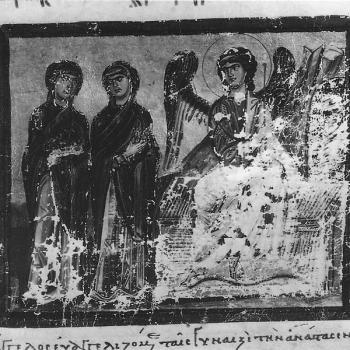Whether it’s a birthday fundraiser online, offering time at church, or requests for funding, “giving time” can be an awkward period for Christians of all denominations. For one, it’s easy to feel like everywhere we turn, someone is constantly asking for money. Charities, non-profit organizations, school fundraisers, requests to “round up” at the grocery store, and emails asking to give to one thing or another overwhelm our life experiences. This is in addition to the fact that all major expenses – from groceries to utilities and rent – have all increased at an exponential rate. When we already feel tapped out…it’s time to pass the offering plate at church.
In a world driven by profit and greed, moral questions continue to rise about the ethics involved in church finances. While megachurch preachers may seem to live lives of luxury off the offerings of their followers, the majority of churches and ministries struggle to stay open. Social media discussions abound with questions as to whether or not “God needs your finances,” frequently encouraging people to give anywhere but at church. This begs the question: should Christians give to churches?
The short answer is yes. God not only encourages, but mandates His people to give. To understand why, we must study the relationship between money and faith. For this, we will start with a survey on money in Bible times.

Representative money and religion
No one is exactly certain where the idea of money started, because it predates written history. Early history suggests the idea of a “medium of exchange,” better known as “trade.” People would exchange goods or services of an equivalent value or need for something else (such as grain, livestock, beads, or shells). Then there was the evolution of “money of account,” which is the idea of credit and debit for goods and services. There are varying reports, but accounting practices involving money date from anywhere between 30,000 years ago to around 7,000 years ago.
The idea of money didn’t begin with religion, but this doesn’t mean religion didn’t play a role in the evolution of money as we understand it today. The idea of “representative money” (such as coins or dollar bills) actually predates coinage. Egypt, Babylon, China, and India all had commodity warehouses that would use clay tokens or other materials representative of a certain value where people could claim goods or services through religious temples or palaces. This means the necessity of currency evolved through religion and government rather than trade.
From the earliest of times, religious groups have needed something that represented “money.” Whether it was to keep track of item distribution during disasters or cover repairs for buildings, furnishings, replacement items, or something else, money has always been part of spiritual systems. Even the ancients realized giving to God is good for us.
The minds of many are asking…but why?
The idea of tribute
In order to understand the concept of “giving to God,” one must first understand the idea of tribute. Tribute is defined as: “Something given or contributed voluntarily as due or deserved, especially a gift or service showing respect, gratitude, or affection.” In other words, the idea of tribute requires spiritual giving, because giving from what we have indicates respect. When we fail to give from what we have, we fail to offer full tribute to God.
The book of Haggai reveals a very different picture of giving than we tend to see today. Rather than talking about what “preachers do with the money,” the book focuses on the Israelites who refused to give for a whole different reason. Having returned from captivity, the Israelites attended to their own personal needs for seventy years. They built themselves houses, stored up profits for themselves, and the temple of God sat in ruins. Even though the people held back from God, their behaviors weren’t doing them any good. They selfishly kept, and still didn’t have enough.
In the middle of this scenario, God makes the following statement:
‘The silver is mine and the gold is mine,’ declares the Lord Almighty. (Haggai 2:8, NIV)
The Israelites weren’t paying God His due through tribute. The verse above explains the reason why tribute exists in the first place. By returning a portion of what we receive financially (in any form), we acknowledge God is the reason we have anything at all. The silver, gold, and money are His – and that means as easily as it comes, it can also go. It’s not that God “needs” our money, but that we must acknowledge Him financially as much as we do any other way. He is, at the beginning and end, responsible for the finances we have.
Working ‘down here’
From the very beginning, God’s plan for humanity has involved community. For community to thrive, people must have points of engagement. Throughout salvation history, these points of engagement varied. They included the Biblical tabernacle, later the temple, and now in modern times, our local churches. How does God cover the various expenses for these central places for worship? Does He magically provide from heaven? Do the resources fly down on angel wings? No! Instead, God expects a community point of engagement to be covered by the community. The people who benefit from the service are required to cover its expenses. It’s a simple concept: God doesn’t perform a miracle here; He institutes a system to ensure everyone’s needs are provided. Through tithes, firstfruits, offerings, and almsgiving, the entire nation of Israel had no lack.
If you study giving, you will find God is very well aware that operating spiritual institutions this side of heaven cost money. Christian leaders ask their congregants to give because the electric company, water company, internet provider, cleaning supply group, Christian bookstore, and furniture store all ask them for money. The buildings we use require maintenance. The phone company requires payment for services. While we work down here, the exchange of goods and services is still a necessity.
The latter part of Matthew 10:8 is often quoted as a reason why ministers shouldn’t ask for money:
Freely you have received; freely give. (NIV)
What we overlook: if you are freely receiving, you are required to freely give. That’s the only way the church can continue. If churches freely give but don’t receive, the system can’t continue.
How much should we give?
God gives His all, and He asks us for our all. This doesn’t mean give to the point of nothingness. We do, however, need to give both what we promise and in accordance with what we have. Learning how to give and what to give is income-based. We learn this technique in the Old Testament.
According to various accounts, observant Jews gave away somewhere between 22% and 33% of their income in Old Testament times. There were tithes (there was more than one – we will discuss these in our next column), offerings, sacrifices, and almsgiving. If it sounds like a lot, it was. Still, God promised they would have enough. This being said, why did God ask for so much?
God addresses covetousness in human nature. If we are honest, none of us likes to part with what we have…especially when we feel as if we “earned” it and it is, therefore, ours. By expecting so much giving, God reminded Israel whatever they had could be lost – and to keep having, they needed to keep God first in their lives.
In modern times, we argue against giving because we dispute the validity of the form of such rather than seeing it for its essence. I don’t think God is as much about amounts as He is about the way that we give. But if we are honest with ourselves, many of us want a way around giving that doesn’t cost us anything. We want to hold back the best part for ourselves and still be right before God, and it doesn’t work like that. God may not be asking us to give away 33% of our income today, but if we want God to bless us, we have to give. He gives us everything…so how can we not give?
Additional resources
In our next column, we will discuss tithing, especially how it applies today. If you would like more information about Biblical finances, check out my books: My Money Has a Mission! and Calling the Kingdom Remnant: A Journey Through the Book of Haggai.














